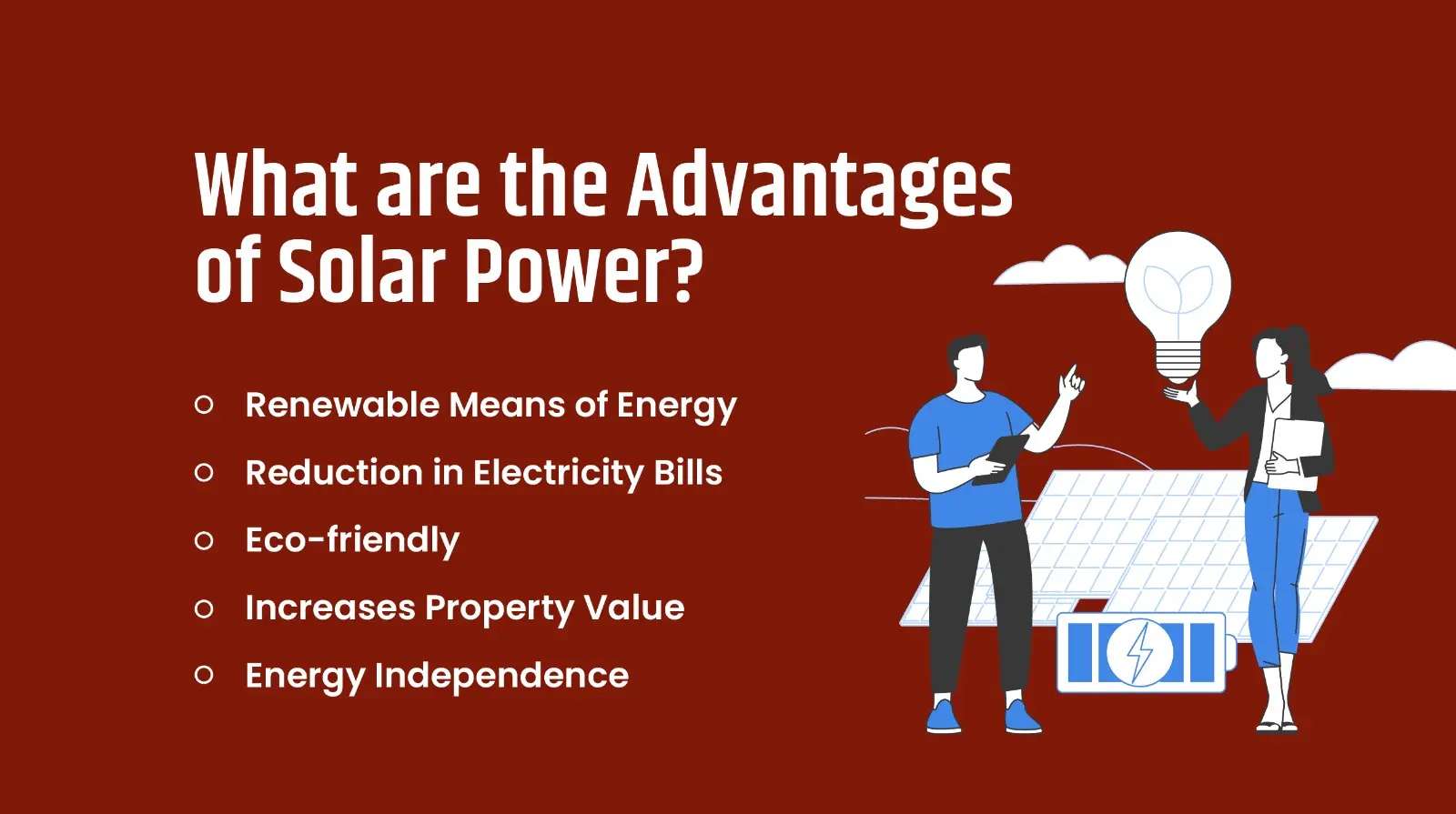How Does Solar Power Work?
The sun is the ultimate source of energy that generates heat and light in unlimited amounts. This energy of the sun can be used to produce electricity. Solar power is the most efficient and renewable energy resource for producing electricity. Unlike fossil fuels and other conventional forms of energy, a solar power system contributes towards green and cleaner energy. If you are considering becoming energy independent, KLK Ventures should be your first choice to trust for the best solar solutions.
Before planning to bring this solar power into your home, you should know how it works. The present blog is the ultimate guide which will help you to understand solar power technology. The step-by-step process is explained below, along with the answers to key questions.
What is Solar Power?
Solar power refers to the power of the sun harnessed by solar panels for heating purposes or electricity generation. The production of electricity or heat is greenhouse gas-free and also low in cost. This means that by going solar not only are you availing benefits but the climate is also benefiting.
There are two main types of solar power technologies:
1. Solar Photovoltaic (PV): PV panels harness the energy from sunlight to produce electricity through the photovoltaic effect. PV panels are generally installed on roofs or solar farms.
2. Solar Thermal Energy: This is the process of using sunlight to create heat. The systems are employed for the heating of water, air, and other substances for use in home heating, hot water, or even industrial applications.
Now let us understand the mechanism of solar panels through which the energy is produced.
How do Solar Panels Work?
Solar panels for homes function by receiving the sun's rays and changing them into electricity or heat. They are of various sizes ranging from small to big for applications in commercial use or small lands. The most crucial part is the photovoltaic cells. The cells are constructed using semiconducting material such as silicon. The rays of the sun hit solar panels. This is absorbed by the solar cells. The particles of light are made up of photons.
- The sun’s rays fall on solar panels. This is absorbed by the solar cells. The particles of light are made up of photons.
- These photons excite the electrons in the material. This generates the electric charge.
- The electric charge leads to the flow of electrons which generates direct current (DC).
- The DC electricity generated is converted to the alternating current (AC) by passing through an inverter. This electricity is suitable for home usage.
Different Types of Solar Power Systems
There are various types of solar power systems, among which three are on-grid, off-grid and hybrid solar systems. Once you decide to go solar, the first thing is to choose the system that suits you the most.
Grid-tie systems
This saves money on your electricity bills. It is far less expensive than the electricity brought from utility companies. This system is connected to the electricity grid. The excess electricity can also be transferred back to the grid. When the solar power is not working, you can harness power from the same grid.
Off-grid systems
This system is independent of the electricity grid. It is used to deliver power to remote areas with no access to power lines. These systems come with different types of batteries attached; the batteries store power for later use. They are more costly when compared to grid-tie systems.
Hybrid systems
Apart from the above two, there is also a third system which is a hybrid of these two. This system is connected to the grid but also uses batteries. You can use these in times of power cuts and low sunlight. Because of this, hybrid solar systems are more reliable as they have both the properties of grid-tied and off-grid solar power systems.
How long do Solar Panels work?
Although solar panels last for many years without any difficulty, their working also depends on the manufacturers. Most of them guarantee the efficiency of working for more than 25 years. Even after the warranty is up, the panels keep on working with low efficiency. Parts like inverters and batteries have a short life span and you need to replace them at least once. With KLK Ventures, you need not worry about the efficiency of your solar panels for home. We provide our customers with the best and most efficient products.
Applications of Solar Power
Solar power is used for varied applications and for both commercial and residential usage:
1. Residences
Residential solar panels are increasingly in use for house rooftops. They provide electricity and hot water to homes. Their installation also increases the value of homes.
2. Corporate Areas
Many small and big businesses use solar panels to reduce the cost of electricity or improve sustainability. The excess electricity can also be sold, generating more income.
3. Agriculture
Solar Power is also used in agricultural settings. For example, in irrigation systems, lighting, etc.
4. Remote Locations
The remote areas with no access to the grid depend on solar power (off-grid system) for generating electricity.
Top 5 Advantages of Solar Power

1. Renewable Means of Energy
Solar power is a top priority in residential or commercial uses due to the production of renewable forms of energy. This power is harnessed by capturing the energy of the sun. Sun is that form of light resource which will never deplete like the fossil fuels. Therefore, by going solar, you will become energy-independent.
2. Reduction in Electricity Bills
With the help of solar energy, you can produce your own energy. By doing so, you can become independent of the electricity grid. Ultimately, this will cause a reduction in electricity bills.
3. Eco-friendly
Solar power is a green and clean source of energy. It does not emit any greenhouse gas when the same energy is utilized for generating electricity. This means that solar power is required in order to have a sustainable future and it is eco-friendly.
4. Increases Property Value
If you make wise decisions to use solar Power in a correct manner and install solar panels on your rooftops, it will lead to a great future investment. The installation of solar panels also increases the value of land as it is seen as an attractive proposal.
5. Energy Independence
By going solar, you're helping yourself a great deal. Why? Through solar panel installation, you avail benefits of reduction in the electricity costs. This will reduce your reliance on external sources, and you won't need to worry about power outages either.
Conclusion
If you are deciding to install solar panels in your home, it is best that you understand the mechanisms of solar power. This will guide you in making choices regarding whether or not solar power is appropriate for you. Solar power is a green alternative for the environment and you as well. KLK Ventures provides you with the best medium for harnessing solar power. Therefore, make wise decisions to reduce energy dependence by trusting us. This will help with a sustainable future and a better environment.
FAQs
1. Why should I go solar?
There are many benefits of going solar and harnessing solar power. It is less expensive than other forms of energy. It also reduces the pollution in the environment and increases the property value.
2. How does solar power work?
It operates based on solar panels, which you can mount on the roofs of your homes. These panels consist of photovoltaic cells which transform the energy from sunlight to electricity directly.
3. How efficient is solar power?
The solar power efficiency is 15 to 25 percent. It also varies with technology and the quality of solar panels that you are utilizing.
